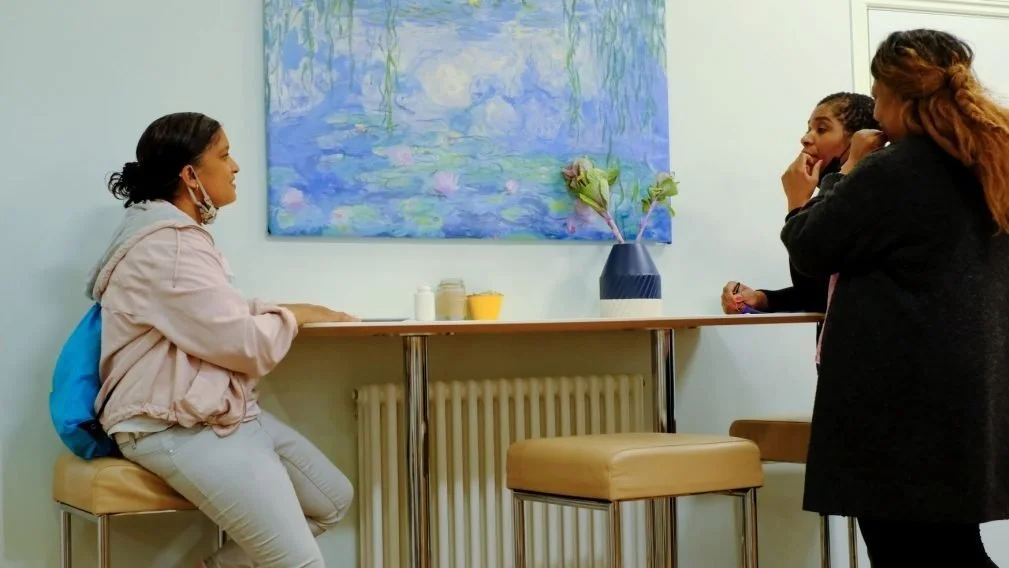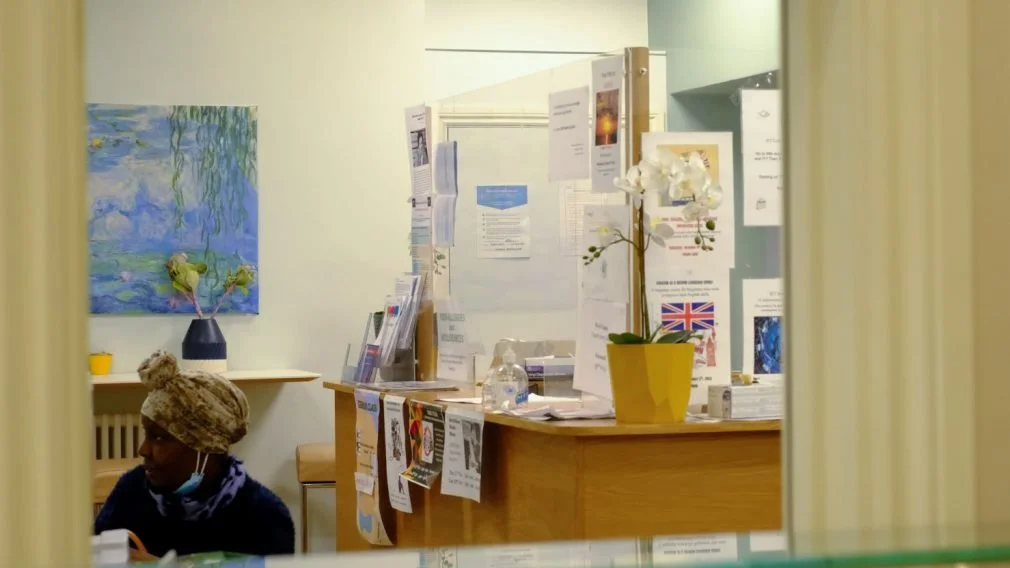Our Work With The Marylebone Project
We have been working closely with the incredible Marylebone Project ever since the start of Sanitation4Sisters, and they have taught us so much about how to have an effective impact on reducing period poverty. It is a charity focused on female homelessness, but they also have a strong understanding of period poverty as the two often can be linked. The support of Fundraising Manager Evie was especially helpful in helping us get started, and it was through her cordiality that our partnership with the Marylebone Project was formed.
Initially, our understanding of the issues surrounding Period Poverty was nowhere near developed enough to start a non-profit; however, with the help and willingness of our partner, we were able to learn so much. In particular, Venus and I had a meeting with Centre Manager Miriam and her colleague Semhar which was hugely enlightening. They taught us heaps about issues that are often overlooked within period poverty, as well as highlighting that the lack of awareness around period poverty is one of its biggest problems.
Throughout our time working with the Marylebone Project we have seen just how devoted they are to helping women in need, and their expert support has helped us identify both the exact approach we want to take towards tackling period poverty, and how best to do this. The Sanitation4Sisters team cannot stress enough how great The Marylebone Project is as a charity, and we strongly encourage you to check them out and learn more about women’s homelessness.
Insights from our interview with Miriam and Semhar
-
Period Poverty isn’t just about the products, it’s about the mental stability of a woman, and what they are going through mentally, physically, and spiritually. Many things, such as fleeing one’s country, being homeless, and domestic abuse can all massively affect a woman’s menstrual cycle. These events can shift the pattern of their periods, along with stopping them all together. On the other hand, stress can also worsen the issue, causing the periods to last for a longer duration.
-
We provide a variety of products at the centre and we try to ensure that they are accessible to all the women; that includes tampons, sanitary towels and at times menstrual cups. These are provided to all women who may not have access to benefits or housing. Although the products are available to all, women from different backgrounds may not be comfortable to go to reception and ask for help due to the stigma surrounding periods. It is important to acknowledge this, and we try to stop this issue by leaving the products in the bathroom or with notes.
-
Period Poverty can also stem into menopause, with menopause poverty rarely being mentioned. Women at later stages in their lives deal with the changes that come with menopause, as well as the body naturally starting to stop having periods. We try to provide a lot of support for women going through this, including workshops where outside partners can offer spaces for conversation on sexual health, periods and menopause.
-
One never knows how vulnerable an individual may be, and so it is always important to be sensitive towards the issue. We make sure that all the women know that the support is always available, and it is beneficial to maintain an open atmosphere in conversations.
-
Massively, the women we work with are from all over the world, and may speak different languages, but if there’s one thing women can bond over it’s their experiences of being women. It is so important that spaces to talk are available, and we are trying really hard to break down the social barriers that may be preventing women from receiving the help they need.
-
Periods, or a lack thereof, can affect all kinds of people, including those in the LGBTQ+ community. It is important to remember that some people who have periods may not identify as women (they may identify as a man or non-binary for example) and that some women may not have periods (they could have a medical condition affecting their hormones, or be a transgender woman for eg). Our service is a safe space that welcomes all women, and as staff we aim never to make assumptions about what any of our women are going through in order to create an inclusive and free environment for all. There can be a lot of emotional challenges surrounding the misconception that in order to be a woman you have to have a period. One of the ways we provide support for this is by working closely with SASH London, a brilliant sexual health charity that offers inclusive advice on relationships, sexual health and mental health.
-
Men in general can definitely benefit from learning more about periods and period poverty. In our experiences and when listening to the stories of people who have periods, when period-related issues are brough to a male GP, sometimes there has not been the understanding as to how serious the issue is, and because of this there is actually a lack of knowledge that women and people who have periods have over their own bodies. This is period poverty, as not all uterus-owners have had the accessibility to learn about symptoms outside of anything that is not a ‘normal’ period. Periods not being imbedded into education for all genders, is poverty in itself. More awareness should also be raised relating to period poverty in the workplace as it is not uncommon for people, who cannot prioritize their period, to have to make do with other means of dealing with it.
-
Ask questions! Talk to the women in your lives, talk and learn with your mates about the issues that people who menstruate face. Although bear in mind that this can be a sensitive, personal topic and not everyone will be up for talking about it. In this instance, google is your friend! We can all learn so much from asking questions and researching. Let’s make it less of a taboo!!
Please note, opinions are the interviewees own.




